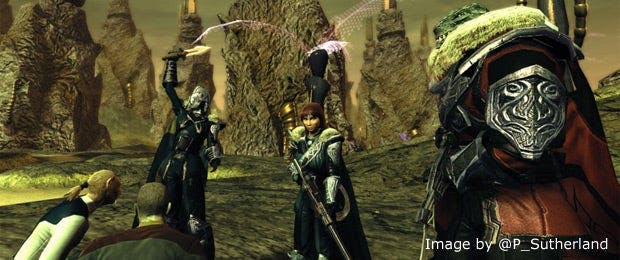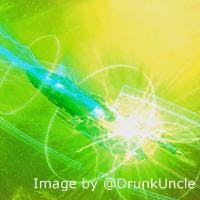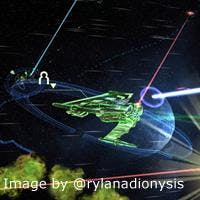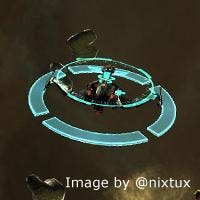Published Jan 3, 2014
Teamwork & Tactics for Captains
Teamwork & Tactics for Captains

Hello Captains!
My name is General and I’m the mascot of Task Force Spectre, a PvP/PvE fleet in Star Trek Online. You also may know me as a Guest Host and Researcher for STOked Radio, or recently as a PvP Boot Camp coach. Before we jump into things, I want to mention that this blog will not be about numbers, but rather words. Now, this information I am going to present may not be the most important aspect of PvP, but I believe it to be an essential part of it. This knowledge can also be applied and will be very useful for the upcoming community PvP tournament, STO Frontlines. Lastly, parts of this blog can be applied to Elite versions of PvE missions, like “Into the Hive” and “Hive Onslaught”, just two of the many Special Task Forces (STFs) in-game.
Now, most of us play PvP for fun, and most will argue that it is usually more fun when we win. However, our losses help us gain experience and become better PvPers. It may take a lot to succeed in PvP, and matches are won with more than individual skill and reflexes. Some of teams out there don’t have much success because they don’t have what I like to call the “4 Ts of PvP”, they don’t use them much, or they just don’t know how to use them. So today, I will explain what these are and how to utilize them.
This blog is broken into several sections: Thou, Team, Teamwork, and Tactics.

Thou (You)
You, yes you! You can be the most critical part of the team in any queue and challenge match because you can be the reason that your team wins or loses, including your attitude (e.g. sportsmanlike conduct). In fact, I would argue that sportsmanlike players win more matches every day than those who are not. There can be many other reasons that contribute to a win or loss, including communication, following or not following the strategy, healing or not healing, etc.
I believe that the most critical part about you is about being healthy. What being healthy can do for you is that it will be much easier to concentrate. Being more focused on the task at hand, you will have quicker reaction times and reflexes. As a Veteran Player, this has helped me very much and can help you as well, especially when you’re new to the scene. At first you will notice a slight difference, but in the long run, it will have the biggest impact. Other important aspects include your skills and bridge officer stations/ abilities. You can easily find some good builds for specific ships by asking for them in STO’s builds sub-forum or on the STO Academy website.
Team (What makes a good team?)
The next important thing is your team. Your ability to co-ordinate as a team has a significant impact on a match’s outcome. Building a team can be easy to do, and parts of your team can be from your fleet, friends, and/or people from in-game chat channels (e.g. OrganizedPvP).
First, I suggest figuring out your team’s strategy of what roles people will take – this will help you figure out what kind of team you’ll be bringing to the match. Get to know the team’s builds and see how individuals’ play style fits in with your own. From what I have gathered during my PvP experiences, I recommend the following team composition: 2 Tactical damage dealers, 1 Engineer tank/healer, 1 Science, and 1 extra Science or Engineer tank/healer (depending on what people you have available to team up with, and what style they are most comfortable playing with). The reason I recommended this composition is because you’ll be getting a mix of all 3 classes or roles, resulting in your team having DPS/damage output, science exotic particle damage/ crowd control, and damage resistance/healing, all with a minimum sacrifice, but maximum flexibility. Ground PvP team compositions are slightly different – instead of an extra Science class, I recommend going with an Engineer class support player.
Next, I recommend deciding on who will be the team leader, or “caller” as they may be dubbed. Their role is to “call” out who needs to be targeted and healed. The requirements to play this role should revolve around experience and familiarity with knowing how the team works and everyone’s individual roles. Being able to create a strategy, in addition to countering your opposing team’s strategy, is also crucial, but I will talk about that in more detail shortly. I also recommend a secondary caller to call out heals if a teammate is in trouble, out of heals, or busy.
Last but not least, I believe that the most effective and efficient team strategy on the battlefield is good communication between teammates. To achieve this, everyone should know what their role is, as well as communicating often to your teammates on what is happening. This includes notifying the team if something is wrong, if someone is in need of a heal or some extra firepower, or if you have a suggestion to alter your teams plan/strategy.

Teamwork (and Sportsmanship)
Teamwork plays a bigger role in PvP and PvE than you may think. Let's take a closer look on how it can impact your match. Say you start a game and some of your teammates begin to die, then more of your teammates begin to let themselves die off out of frustration that the other teammates have already been easily killed. This could lead to one or more of your teammates becoming “visually” upset. Now, you have a choice: 1) you could respond in anger, yelling and screaming at them (but that of course that will not help the situation improve), or 2) step up and providing constructive feedback. Epic comebacks don't come from berating your teammates. Rage doesn't win matches. I believe that each negative player on your team decreases your chances of victory, going from a 50% win rate with zero rage, down to a 46% win rate with a slight amount of rage, and it keeps decreasing from there. It makes more sense to focus on teamwork and constructive feedback, rather than chastising your fellow players. Help your teammates out, give them some help and concentrate on your role, and try your best to keep tempers from flaring. Players who keep their team focused win more matches. Players who fight fire with fire sabotage their chances of winning. Ultimately, sportsmanship and teamwork wins the game.
The impact of teamwork can be tracked in real time too. You just have to follow the rewards. My early findings suggest that there is a direct correlation between a team's behavior and the rewards they earn from a match. Things can start to go downhill after a failed match if one player decides to blame the failure on their teammates. They may label some of the other players as “Noobs” and fly off the handle. Teams that stay focused can grab more kills and apply more heals to their teammates. This will bring you closer to victory, and even better, this can lead to everyone having a good gameplay experience. The power of teamwork can be traced down to the individual player. I see players with a positive attitude win, on average, 10% more games than the average player. Meanwhile, players with a bad attitude win 35% fewer matches.
It’s pretty clear; teams that help each other through tough bumps and scrapes are much more likely to win. So the next time you're looking for a victory in PvP, just remember this: teamwork is OP.

Tactics (and Strategy)
Now, the point of tactics and strategy is to figure out how to exploit the other team’s weaknesses. There are all types of tactics depending on what your teams gear, and their starship builds. Tactics can range from cloaking and sneak attacks, to isolating and targeting only specific enemies one at a time. However, these are only two strategies among many. It is up to your leader to decide which strategy your team will go with, or whether you will choose yours tactics depending on what your opposing team is bringing to the table. Predicting what the other team will do as their first strategy, as well as their counter to your first volley, is crucial.
Now, if you find that the strategy is not working, or the opposing team has come up with a viable counter strategy, it is time to switch the tactics for your team. Being able to adapt to the other team’s strategy isn’t just for the Borg. During the match, try to focus on what your specific task is, whether that is protecting or healing your teammates. Above all, try not to panic if something goes wrong. More often than not, that can make things worse as it can cause communication to collapse, which can eventually disband the team. Try to stay positive and constructive for as long as you can.
The last of part of building a team strategy is what happens after the match. Look at how everyone performed to see who succeeded in their roles, and who struggled. I recommend taking a screenshot of the scoreboard and saving it for the records. If someone was able to video record the match, have a look at the footage and review it as a team much like how a sports team reviews their games. If someone did really well, congratulate them. If not, try to talk to that person and offer constructive feedback to see how they can improve on their gameplay style. Sometimes, and unfortunately, it might be time for a roster change, meaning that you switch them out for someone else. In this case, it is best to handle this with as little insult as possible. If your strategy and counter strategies were ineffective, make adjustments accordingly. If things did not work out so well for you and your team, you may do better trying something totally different next time to surprise the other team, and see what might happen.
Great strategies come from great leaders, and great team wide execution. History can provide great examples such as historical battles where the opposition surrounded a city and exploited the enemy’s weakness of unpreparedness for the bitter cold winter. This is a great example of isolating your enemy and using their vulnerability to your advantage. Some strategies from the Star Trek universe can also apply to the game like in the Battle for Sector 001 when the fleet was ordered by Captain Picard to concentrate fire on a specific area of the Borg Cube thanks to Picard’s personal experience and knowledge of Borg technology. This kind of concentrated effort, to focus on one member of the team, such as the Healer, can demonstrate how taking out a vital member of your opposing team can lower that team’s ability to function as a whole. Such tactics can be applied to PvP in STO quite easily.
Conclusion and Final Words
I think we can all agree that it is a really awesome feeling to beat a team in a really close game, something that required good teamwork and good organization. I hope that this blog has encouraged many of you to try PvP and take that first step if you have never ventured into this portion of STO before, all while keeping with this helpful information in mind.
Great examples of strategy and leadership in the Star Trek universe also include the Battle for Cardassia in the Deep Space Nine finale, “What You Leave Behind”, as well as the previously mentioned Battle of Sector 001 in Star Trek: First Contact. Check out these epic installments of the franchise for some inspiration for your team play.
If you have any questions, please don’t hesitate to mail me in-game, or reply to this blog via a private message on the STO forums under my handle ‘starfleetownsall’.
I want to a say a special thank you to my fleet for collaborating in writing this blog.
Alright Captains, I wish you the best of luck, and take care on that battlefield!
General
Mascot, Task Force Spectre
